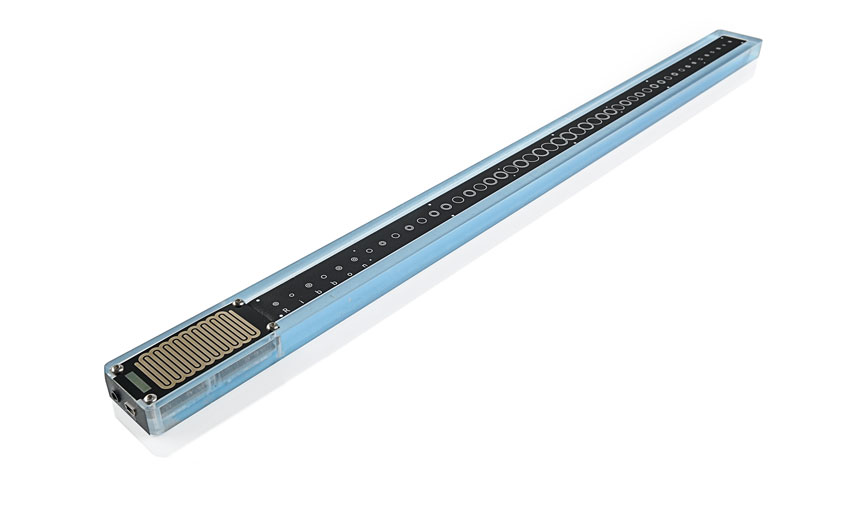MusicRadar Verdict
It's not the smoothest design we've seen, but Eeowave nonetheless deserves praise for the Ribbon's idiosyncratic concept and functionality.
Pros
- +
3-in-1! Interesting, quirky idea.
Cons
- -
No battery option. Only two CV outputs.
MusicRadar's got your back
Some pieces of music gear scream quality and artisan craftsmanship the second you pull them out of their packaging. The Eowave Ribbon isn't one of them.
That's not to say this is a badly made piece of gear, but there's no getting around the fact that what we have here is essentially a two-foot long block of clear plastic with a black plastic strip along its length. It's admittedly solidly built, but it's not exactly pretty.
"First and foremost, it's a very basic monophonic digital synth"
The Ribbon is three things in one. First and foremost, it's a very basic monophonic digital synth, with pitch controlled by your finger's position on the ribbon, volume controlled by your finger's pressure, and frequency modulation controlled by the separate tactile pressure pad. Sound output is via a mini-jack socket.
Secondly, it's a USB MIDI controller, configurable via a Max-based editor. Each of the three control elements - ribbon position and pressure, plus tactile pad pressure - can be assigned to MIDI controls. Alternatively, it's a CV controller with two CV outputs (also via the audio socket). There are a couple of downsides to this flexibility.
The unit can only take power from the USB port, meaning you always need it plugged into a computer or USB power supply even if you're only using the synth or CV functions. A battery option would surely make sense.
Also, there are only two CV outputs despite the controller being capable of three parameters. It'd be nice to be able to use the ribbon position for oscillator pitch, ribbon pressure as a gate to trigger envelopes, and still have the tactile pad CV output to control maybe something like a cutoff of a filter.
“A synthesizer that is both easy to use and fun to play whilst maintaining a decent degree of programming depth and flexibility”: PWM Mantis review
“I feel like that song had everything we needed to come back with”: Bring Me The Horizon’s Lee Malia on Shadow Moses, its riff and the secrets behind its tone, and why it was the right anthem at the right time
“I said, ‘Are we sure we can write a song about death?’”: The story of Mike + The Mechanics' classic No.1 The Living Years










